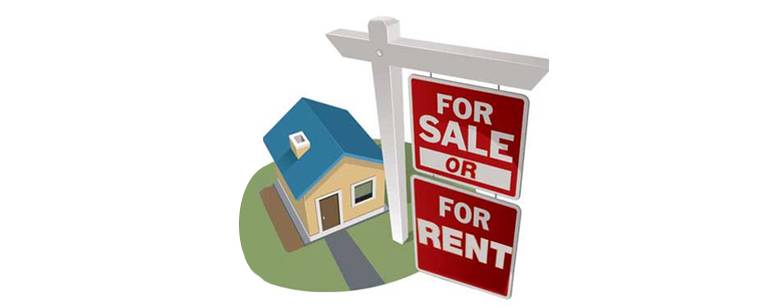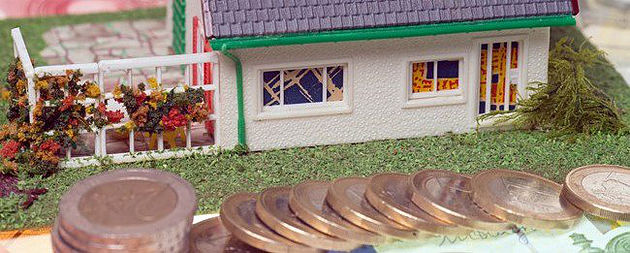SHOULD I SELL MY HOUSE OR SHOULD I RENT IT? HERE ARE THE FACTS
24-05-2016 Industry News Tips and Advice

Deciding whether to sell your home or rent it out is a big decision - one that involves much more than just a financial analysis. Here is a great article that discusses the various aspects of consideration:
http://www.bluepelicanpropertymanagement.com/#!When-Renting-Makes-More-Sense-Than-Selling/ivrew/572b6d5e0cf205ef80ccbb31
When Renting Makes More Sense Than Selling
May 5, 2016 | Green Residential

When moving into a new home, people often choose to sell their previous residence. Most of the time, selling makes the most sense. There are situations, however, where it’s more beneficial to rent out the property instead. It’s important to look at all of the facts, especially when making such a big decision.
More than a Financial Decision
The mistake many homeowners make when deciding whether to rent or sell is a failure to recognize the magnitude of the situation. It’s far more than a financial decision and should be approached as such. In the words of Ryan Severino, associate director of research and senior economist at a respected real estate research firm, “It comes down to more than pure economics.”
While those are telling words coming from an economist, they provide more than just an academic viewpoint on the matter. Severino delivered that quote after deciding to move his family to another home in the summer of 2011. He didn’t know how long it would take to sell his house, or if renting would be a better option. It was then that he realized the decision to lease or sell can’t be made on a spreadsheet (at least not entirely).
Personal factors must come into play and be considered in the decision making process. Some personal elements to consider include:
• Time commitment.

The first factor to consider is whether you have the time to lease your home, as opposed to selling it. When you sell, the process usually requires little personal time – or at least doesn’t last very long. When you rent, you must be prepared to take on the responsibility of being a landlord. What sort of time commitment can you give and will you be able to handle all of the necessary tasks in the future?
• Permanency of the move.

Is the move permanent, or will you be returning in a few months or years? This question is usually important when considering a move for business or work. If the job only requires you to relocate for a couple of years, you may want to consider leasing the home until you return (as opposed to selling). However, if you know that you won’t be returning any time soon, leasing may be more of a nuisance than an advantage.
• Future needs.

Do you have adult children who will be looking to buy a home in the coming months or years? Would they perhaps want to purchase your home? This certainly isn’t applicable in every situation, but is worth considering.
• Emotional state of mind.
Your decision to rent or sell should never be based on emotions. However, these do come into play for many homeowners and their families. For example, did you grow up in the home and are you willing to part ways with it? Selling a childhood home can be emotionally difficult for some, and may lead to regret. If you aren’t sure you’re ready to sell the home, it might be wise to rent it until you can make a more definite decision. Ideally, the entire family should be on the same page with such a big decision.
Analyzing the Financials and Other External Factors
While financials aren’t everything, they are extremely important. Your home is probably your single largest financial asset and decisions about what to do with it should never be taken lightly. Here are a few of the financial and external factors to consider:
• Current market conditions.
What’s the housing market like? Is it a buyer or seller’s market? If it’s the latter – and no other factors are holding you back – it may be wise to go ahead and sell. Any return you make via leasing will probably pale in comparison to the higher return you can get in a seller’s market.
• Long-term neighborhood outlook.
Are there any indicators as to where the future of the neighborhood is headed? Some neighborhoods are clearly trending upward, while others are rapidly declining in value. It may be best to get out now, or you might be able to get a higher return in the years to come.
• Rental rates.
Do you know how much you can charge for rent? In some cases, the amount you earn in rent may not be enough to cover the monthly mortgage, property taxes, insurance, and other fees. It’s important to see what type of cash flow you would have from renting. This capitalization rate calculator from Forbes.com is a handy tool for quick calculations.
• Financing for new home.
Another major factor to consider is whether you need the profit from selling your home to buy a new one.Furthermore, will the bank give you another mortgage? All of these factors should be considered when deciding whether to rent or sell.
The Best of Both Worlds
The good news is that –in some cases –you can have the best of both worlds. If you are willing and able to rent your home, as opposed to selling it, you can enjoy the luxury of keeping your home and deriving positive monthly cash flow, without being a hands-on landlord.
With a professional property management company, you can rent out your home without ever having to deal with a middle of the night phone call, or beg for late rent payments. Even better is the fact that you are legally protected; it’s a smart way to handle such an important decision.
Jonathan



